Revitalize supply chain partnerships to boost the achievement of SDGs
2017-06-30未知admin0010

On June 6, the 16th Sino-European CSR Roundtable Forum, held by China WTO Tribune and Foreign Trade Association during the 12th International CSR Forum, invited enterprise representatives and CSR experts to share their thoughts and practices in revitalizing partnership and sustainable supply chain by focusing on the theme of “Reshape Supply Chain Partnership to Create Shared Values for Sustainable Development”.
The coordinated cooperation in consortium mode for building green supply chain system
Mr. Guo Xiuming, Associate Counsel, Department of Policies, Laws and Regulations, Ministry of Industry and Information Technology
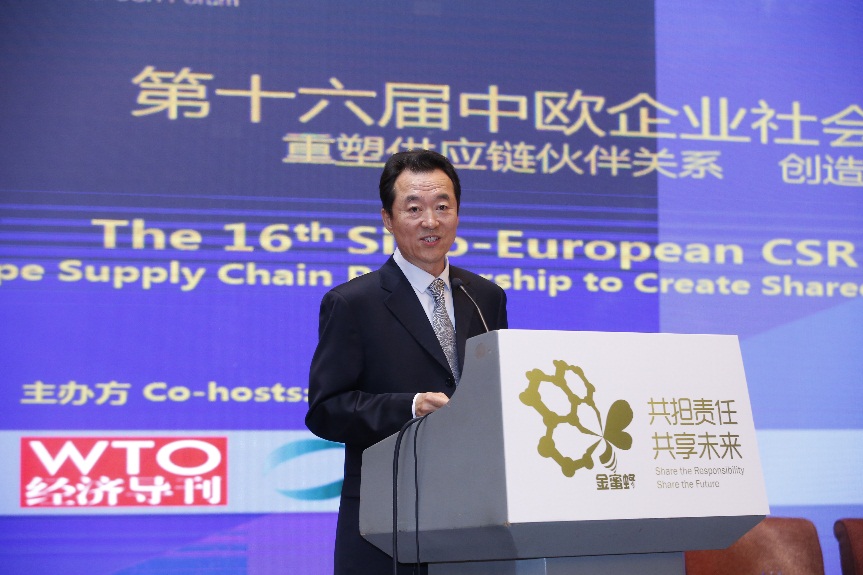
The achievement of goals of “Responsible Consumption and Production” and “Partnership for the Goals” in the UN 2030 Agenda for Sustainable Development is significant for the implementation of Made in China 2025. While carrying out the green manufacturing system integration 2016-2018, Ministry of Industry and Information Technology, and Ministry of Finance proposed that, in particular, to fully mobilize the enthusiasm of partnership in consortium mode will promote green manufacturing system integration.
By supporting enterprises and suppliers, logistics providers, vendors, and end users to form a consortium and formulating green supply chain standards, the enterprises consortium can benefit from the data collection ,analysis and evaluation system of resource and environment in whole life cycle, covering key processes of procurement, production, sales, logistics, using, etc. The information sharing, delivery and disclosure platform between upstream and downstream enterprises also needs to be established to develop a typical industrial green supply chain management model and implementation approach.
A balance between people, planet and profit to seek for the sustainable development
Mr. Christian Ewert, Director General, Foreign Trade Association
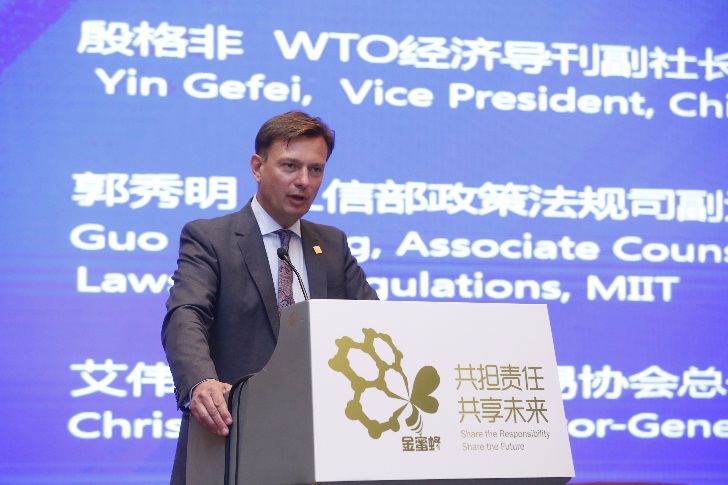
To realize this future, FTA has developed a strategy called Vision 2030. It clearly reflects our belief in a world where all trade delivers social, environmental and economic benefits for everyone. At FTA, we believe that a business cannot thrive in today’s society without maintaining a balance between the three ‘P’s’; people, planet and profit. We see that only successful businesses can drive sustainability, and vice versa.
However, we cannot achieve this alone. Vision 2030 also acknowledges that there needs to be a shift from centralized structures and organizations towards more dynamic networks and meaningful partnerships. We need to expand our global reach and to improve our local impact by developing regional partnerships and infrastructure. After all, the last of those 17 SDGs emphasizes that a successful sustainable development agenda requires partnerships between governments, the private sector and civil society.
The engagement of a wide variety of stakeholders multiplies the momentum for sustainable development
Ms. Wang Yalin, Project Manager, United Nations Development Program in China

There is facilitation for achieving SDGs. The first is the inclusiveness of development participation: it is not enough for development financing by relying on official assistance to bridge the funding gap, and the public-private partnerships could fully mobilize innovative market resource and cooperation model, recreate commercial opportunity, as well as achieve greater social and environmental value. The second is the exchange and sharing of technology, experience and knowledge: enterprises, governments and civil society all have their own advantages, and the bilateral or trilateral cooperation could make up for their own shortcomings. Practically, the process of cooperation could get new skills and advance their own abilities. The third one is the participation of emerging forces. The cooperation platform for SDGs should not be limited to the government level, but should include the diverse development drivers, which would bring new opportunities for the nontraditional development forces, like enterprises, civil society, etc.
Co-building promotes sharing and pursues win-win cooperation in the supply chain partnership
Mr. Zhang Yipeng, Vice President, Inner Mongolia Yili Industrial Group
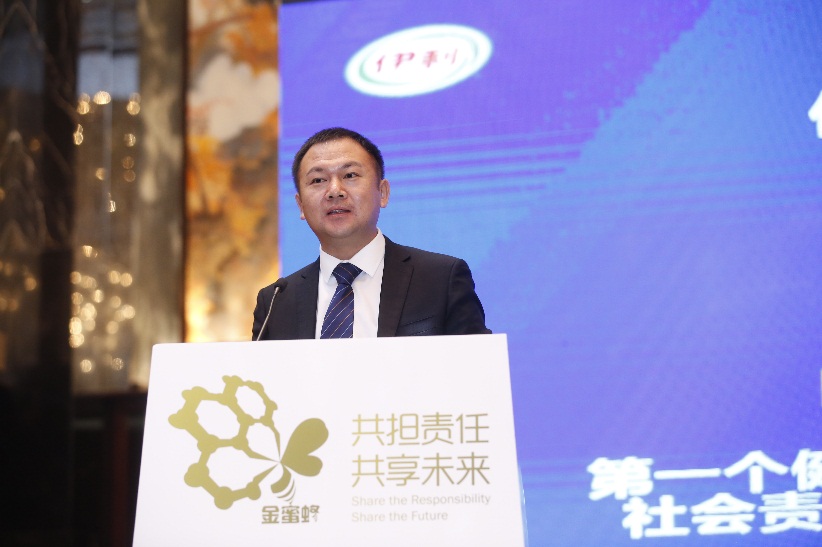
In years of production and operation, we have made joint efforts with many partners in the upstream and downstream of industry chain to pursue the co-building, sharing and win-win result. Yili’s co-building aims to build community with partners.This is a service-oriented partnership, including not only dealers, but also all of the partners involved in the whole cooperation chain, such as dairy farmers, supplier, etc. By building a responsible community, we share our daily work with society and all of partners, and hope the information and our working progress could also bring them value. Win-win result implies that we want to build a community of common destiny so as to make progress with our partners, society and ecological environment.
Collaborations in partnership for food waste reduction in supply chain
Mr. Sébastien Pivet, Quality Assurance Director (Health and Beauty Retail), and Head of Corporate Social Responsibility, A.S. Watson Group
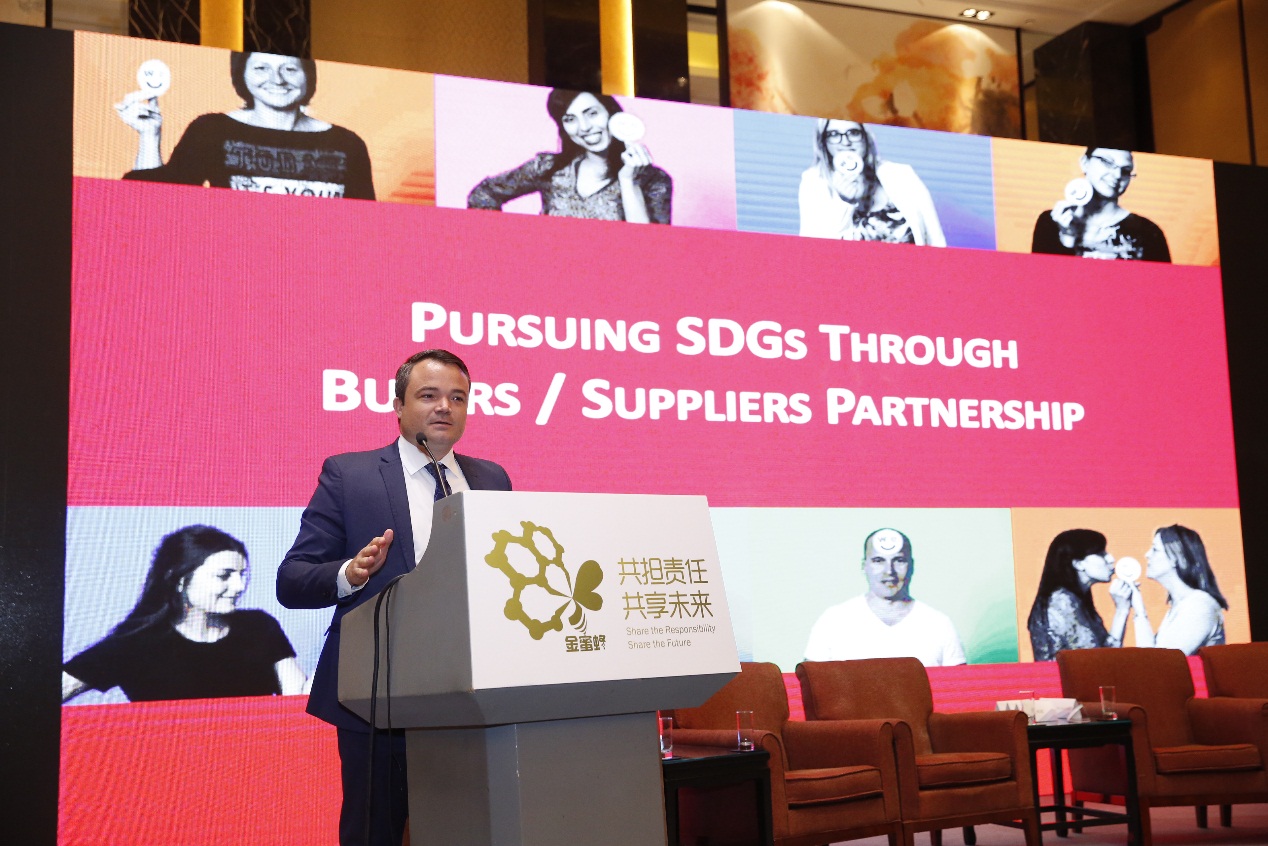
Based on the four pillars of A.S. Watson Group’s CSR priorities: workplace, marketplace, environment and community, we establish food recovery hierarchy to reduce food waste. By improving order forecasting, we clarify the food approaching “best before” date and mark down the price. The edible food will be donate to the people in need by partnering with charity organizations and the non-edible food will be buried in landfill. This process is supported by enough infrastructure and we collaborate with partners to jointly reduce the food waste along our supply chain.
The supply chains vary in different industries. How to seek for better partnership based on their industrial practice? In panel discussion, the speakers share their perspectives relevant to their respective business.

Mr. Phillipp Kruschel, Executive Director, Emerging Market Multinationals (EMM) Network for Sustainability, GIZ, shared the practice of EMM in sustainability and partnership. By integrating sustainability philosophy into corporate operation, developing tools of sustainable return on investment and building models, EMM facilitates the sustainable management of enterprises. It also enhances communications through various channels and with diverse stakeholders, like think tanks and governments, and strengthens the sustainable practice by establishing partnerships.
Ms. Joyce Chau, FTA Representative China, proposed to promote supply chain management by unified standard, unified approach and training, and adopt diverse strategy for cooperation to drive the Tier-1 suppliers to fulfil responsibility. She also called for a shared responsibility, innovation and mutual respect for the effective output. The collaborative principle and approaches will boost the achievement of SDGs.
Mr. Sébastien Pivet, Quality Assurance Director (Health and Beauty Retail), and Head of Corporate Social Responsibility, A.S. Watson Group, introduced the Group’s strict control of responsible procurement by citing the examples of its supplier management. This process not only needs a professional procurement team but also requires a lot of social compliance and audit as well as the sharing KPI quality guarantee system to meet the need for responsible procurement when changes happens among suppliers, which also ensures the accurate delivery according to the buyers’ expectation. A.S. Watson Group also clarifies the audit frequency in accordance with its annual turnover.
For the current challenges in seeking for the raw materials with good quality and quantity, Mr. Bridge Mak, Director of CSR and Internal Communication, Corporate Communication Department, LKK Health Products Group, proposed that enterprises should establish an equal buyer-supplier relationship with mutual trust for coexistence and win-win cooperation. Facing various uncertainties, they need enhance communications and tackle problems together. LKK Health Products Group made innovations to sign contract with farmers directly and conduct a whole-process control planting mode for raw material. This not only guarantees the long-term stable profit but also ensures the supply chain management with good quality and quantity. Mr. Mak emphasized that enterprises should establish an ecosystem and he encouraged every enterprise shoulders its responsibility to make the partnership closer and the enterprise ecosystem more significant.
As the moderator of the panel discussion, Ms. Zheng Jian, International Project Director, Office for Social Responsibility, China National Textile and Apparel Council (CNTAC), introduced the innovative mode proposed by CNTAC: co-governance of industry. In the two dimensions, namely, the internal management of an enterprise, and the production and cross-industry transfer based on industrial cluster, CNTAC follows the thoughts of information interconnectivity and co-governance of industry to set the green and sustainable development as the working focus. By leveraging the wisdom and strengths of all stakeholders, CNTAC developed a series of tools and focused on the digitalization and exchange of information to build an all-round system involved in multi-stakeholders and a platform for multi-dimensional co-governance.
Best Practices
- Beijing Public Transportation Corporation: Developing green transportation to build a harmonious and livable capital
- CGN: Building a modern factory in barren deserts and developing a new win-win cooperation model along “Belt and Road”
- Guangzhou Huasheng Enterprise Management Service Co., Ltd.: Transparent services for reshaping the automobile service market
Upcoming Event
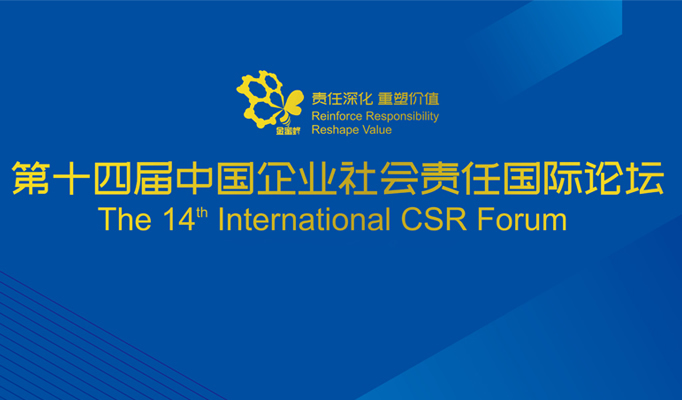
All the materials on the site “Source: XXX (not from this site)” have been reprinted from other media. They do not imply the agreement by the site.
All the materials with “Source: CSR-China Website” are the copyright of CSR-China Website. None of them may be used in any form or by any means without permission from CSR-China Website.
GoldenBee Official WeChat
Copyright © Csr-china.net All Right Reserved.
京ICP备13041808号-3












